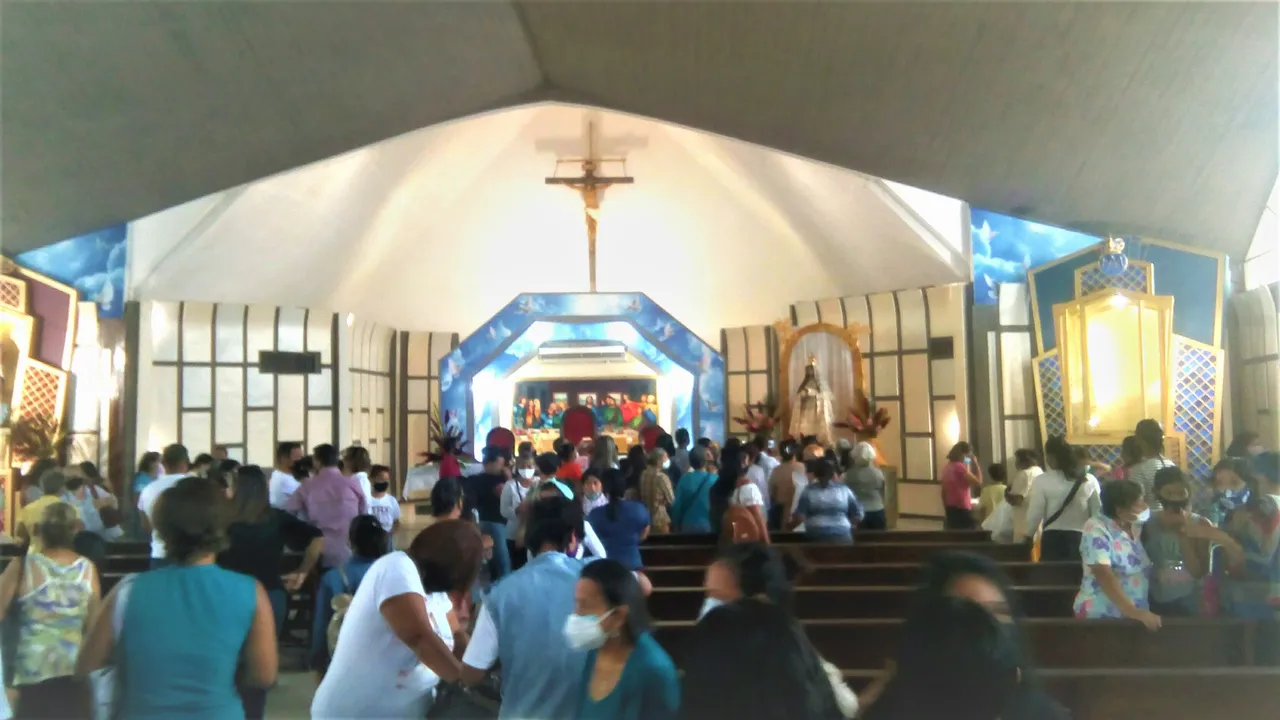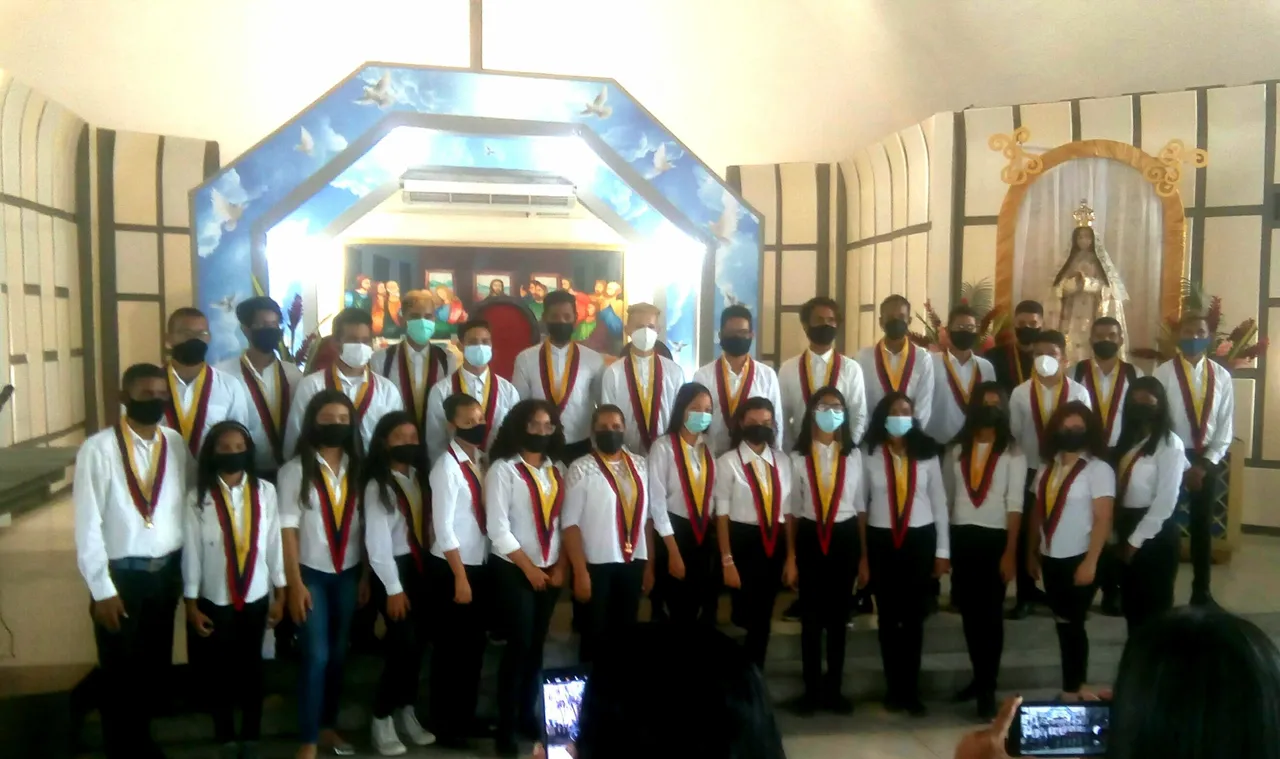Mass Reflections
Today I went to church.
That’s how much I love @manujune. She had a presentation with the symphonic choir and I could not miss that.


Last time I attended mass was about two years ago for @imabby17’s HS graduation.
Those are the only kind of events that would make me go to church again. I have no animosity with this or any other church. I just decided many years ago that organized religion was not my thing. There are tons of other issues that go beyond the walls and people who make up organized religions, but that’s for another post.
I did have a great time today, I even enjoyed the sermon. My daughter’s performance was just fantastic (she will be posting about it) and I know that it means a lot to her to be part of that choir and that we support her in everything she does.
Despite Catholicism’s mechanical and ultimately boring liturgy, once in a while you run into a priest that can entertain an audience and an occasion that makes mass more lively. We had both things today.
Today, the Venezuelan Catholic Church celebrates the 100th anniversary of the consecration of the Virgin Mary in one of its many titles as patron saint of our region (as Virgen del Valle). Usually, around this time of the year every single person in our neighborhood becomes, all of a sudden, a devoted Mariano (follower of the Virgen María). People display statues everywhere; they pray their rosaries, and all the folkloric songs that have been composed in over 100 years in her honor sound non-stop in every corner. I particularly loathe this hypocritical display of devotion (knowing fully well that the rest of the year these same devotees will behave in ways that would shame poor Mary). The most disgusting aspect of the celebration is the excessive consumption of alcohol mostly by men who adorn every corner for days on end in their rather pagan way of showing some kind of "spiritual awareness."
That is precisely the aspect of the sermon that I loved the most.
The priest addressed what he, echoing Pope Francis, called folkloric and melodramatic manifestation of faith. He talked about how the church has lost followers along the 100 years that Mary has been blessing and protecting us with her robes. He made a catalogue of the different Christian holidays that Venezuelans have turned into pagan debauchery; those include Christmas, Easter (Holy Week), and the celebrations of the different saints or virgin titles.
Those have precisely been my complaints since I can remember. Venezuelans have historically privileged the festive aspect of the religious celebrations and tend to be quite inconsistent with Christian principles and values. I guess you may say the same about religious people anywhere in the world.
The Catholic Church went from being a dogmatic, inflexible, and infallible powerful institution to becoming a conflictive and usually contradictory organization whose dogma and rituals seem to be always subject to change or accommodation.
In his sermon, the priest invited people to put aside the music, the dresses, the alcohol and truly embrace their Christian vocation to do good for others and for themselves. He failed, though, in addressing some other pressing issues that have made people migrate from the Catholic Church towards any other protestant denomination or into atheism (and we know from experience that those migrants usually remain spiritual wanderers).
The honest mea culpa is a course they keep failing year after year. It goes beyond the more superficial scandals that make it difficult for anyone to trust the men and women who represent god on earth. It goes into the very core of a fundamental theological flaw: “the power of the Word.”
The church keeps blaming the flock for all the sins, whether they are by actions or omissions. In the meantime, it celebrates the good things that happen as miraculous manifestations of God’s grace. The Word, according to scriptures can transform the hearts of men and women and work miracles. In practice, people realize, sooner or later, that it is their conscious actions or omissions what determines what good or evil is done in the world.

If churches focused a bit more on people’s fallible powers and talents, instead of on the promises of an infallible omnipotent, omnipresent, and omniscient father, it would be easier for people to contribute their share to a better world. They would not suffer the fears, insecurities, or cynicism resulting from the daily disappointments of unfulfilled promises. But, of course, that would be the end of churches and the end of religions.
Thanks for stopping by


